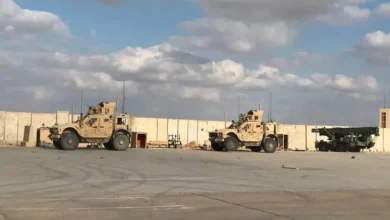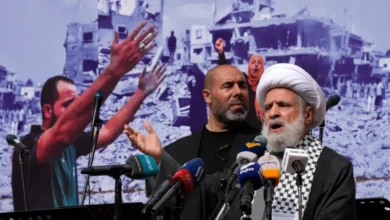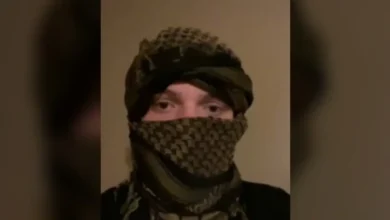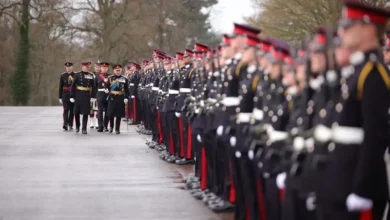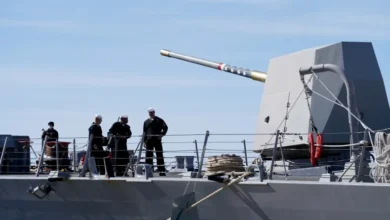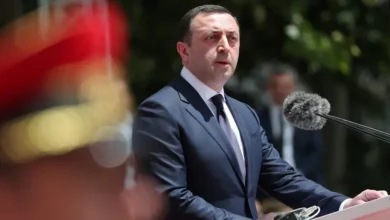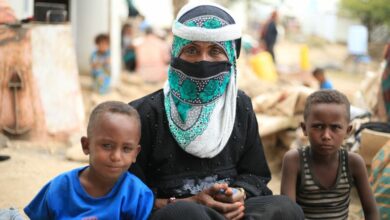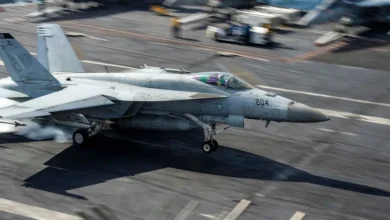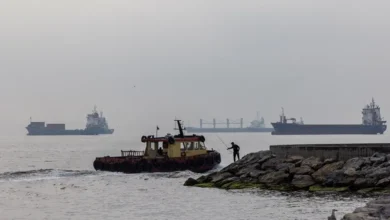For displaced Palestinians in Syria, Israel war evokes Nakba and solidarity
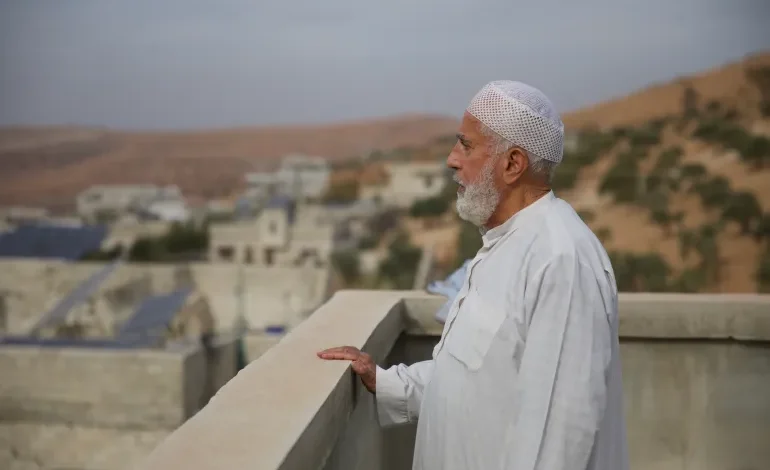
In a small house in northwestern Syria, Muhammad Haninun is glued to his mobile phone, following the latest Israeli attacks taking place in Gaza.
For more than a month, he has watched videos of the Israeli bombardment of the Gaza Strip and the displacement of civilians trying to escape the bombing. All the while, the events bring back clear memories of what he endured 75 years ago.
The 80-year-old cannot help but think about the similarities between what he is seeing in Gaza and what he experienced when he and his family were displaced during the Nakba, or “catastrophe”, in 1948 when Israel was created and more than 750,000 Palestinians were forcibly uprooted from their land and thousands were killed.
“The Palestinian tragedy is happening again,” Haninun said. “The people in Gaza are facing war without receiving any help the same as we did before.”
‘A cracked record’
Since October 7, when the armed wing of the Palestinian group Hamas, breached the separation wall that surrounds Gaza and attacked southern Israel, Western countries, led by the United States, hastened to condemn the movement that has been running the besieged Gaza Strip since 2006.
The condemnation was followed by Western financial and military support for Israel, which has been relentlessly bombing Gaza, one of the most densely populated areas in the world, for 35 days. Since October 7, at least 10,812 Palestinians, including 4,412 children, have been killed in Israeli attacks on Gaza. More than 1,400 people have been killed in Israel.
Similarly, during the first half of the 20th century, Britain provided military support in the form of protection and weapons to Zionists, encouraged Jewish immigration from Europe to Palestine and allowed them to displace hundreds of thousands of Palestinians from their homes as they built a new state for themselves.
In November 1948, Israelis used aircraft to bomb the northern village of Tarshiha in the countryside of Acre, destroying three houses – including Haninun’s family home – and killing seven of his relatives.
“Before that, we had evacuated our homes several times for two or three days and returned. We did not take anything,” he recalled. “We thought we would return, especially since we were not able to recover the dead from under the rubble.”
But they never could.

